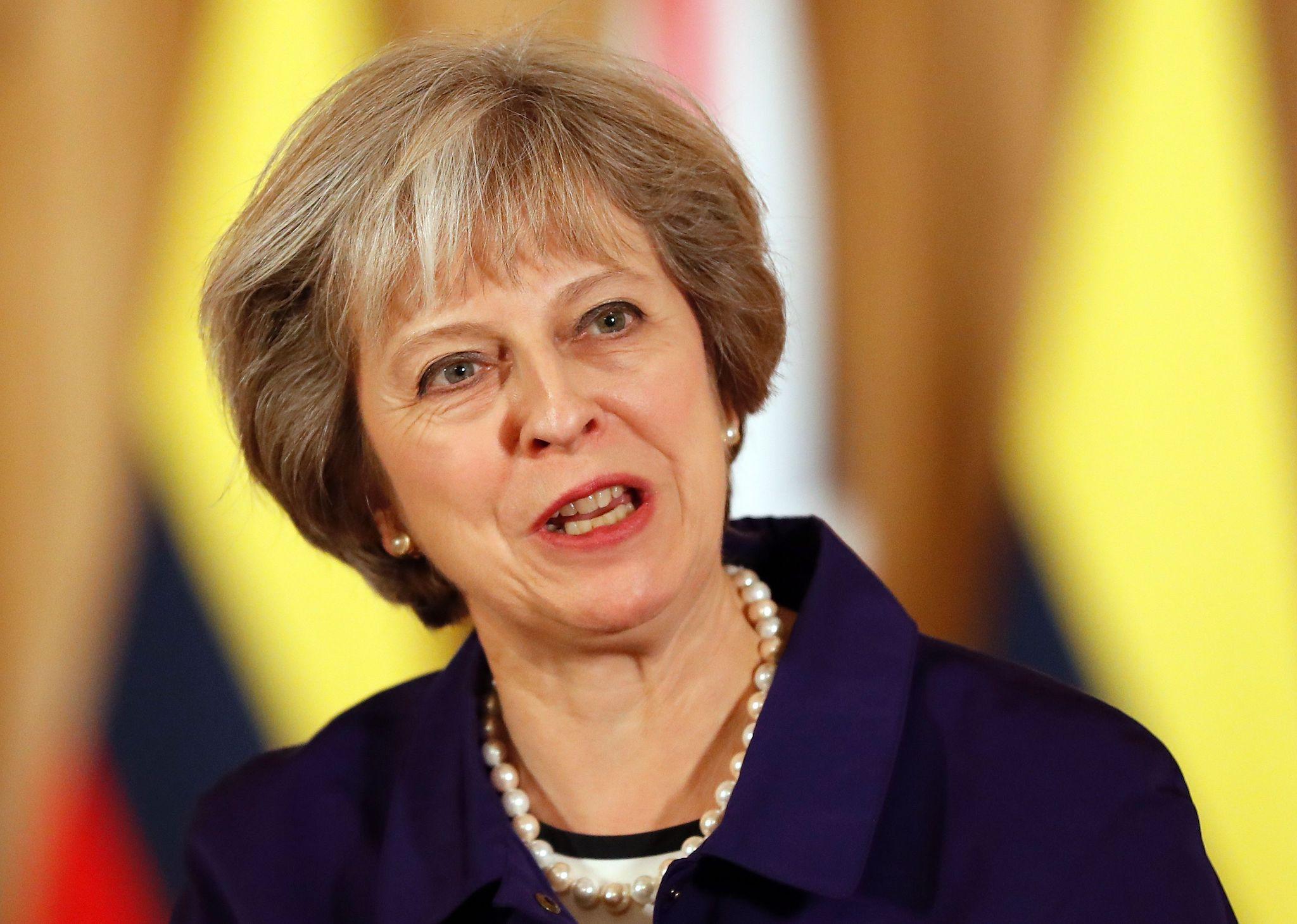Donald Trump needs Theresa May if he is to be a success as President
If the Trump White House is clever and lays aside the rhetoric of isolationism and unthinking aggression, it will recognise that Britain has an authority possessed by no other country on earth


Your support helps us to tell the story
From reproductive rights to climate change to Big Tech, The Independent is on the ground when the story is developing. Whether it's investigating the financials of Elon Musk's pro-Trump PAC or producing our latest documentary, 'The A Word', which shines a light on the American women fighting for reproductive rights, we know how important it is to parse out the facts from the messaging.
At such a critical moment in US history, we need reporters on the ground. Your donation allows us to keep sending journalists to speak to both sides of the story.
The Independent is trusted by Americans across the entire political spectrum. And unlike many other quality news outlets, we choose not to lock Americans out of our reporting and analysis with paywalls. We believe quality journalism should be available to everyone, paid for by those who can afford it.
Your support makes all the difference.Donald Trump’s victory presents Britain with a wonderful opportunity. The commentary to date has been mostly mordantly negative, or triumphantly obsequious. There is an entirely different way to view the news from across The Atlantic. But if Number Ten is to capitalise on it, it needs to react smartly and with resolution.
The special relationship between Britain and the US is one hundred years old next year. The two countries have mostly been each other’s closest allies, through six waves with peaks and troughs.
Traumas during those 100 years have provided opportunities for Britain to exert influence with the US and beyond, opportunities it has not always seized.
The assassination of President Kennedy in November 1963 could have seen a great boost to British influence in Washington. But Prime Ministers Alec Douglas Home and Harold Wilson from October 1964 failed to turn up, and President Johnson went off in his own direction.
The Watergate Crisis and the OPEC oil shock of 1973-74 again presented Britain with a great opportunity for influence over the United States. But Edward Heath had his sights fixed solely on Europe, to the despair of many at the centre, including his Cabinet Secretary Burke Trend who fought against the odds to keep the lines of communication open with the White House.
The crumbling of the Soviet regime in the Soviet Union and Eastern Europe in the mid to late 1980s by contrast was avidly seized upon by Margaret Thatcher, cleverly exploiting her close relationship with President Reagan to achieve an influence for Britain on the world stage not seen since 1945.
The events of 9/11 saw Tony Blair fully awake to the possibilities for British leadership. He seized the opportunity with both hands, and nine days after the fall of the Twin Towers was in New York and Washington exercising a leadership when President George W Bush was floundering. But hubris took over, and Blair and Bush conspired to shatter the unanimity of support from across the west which flowed out towards America in the aftermath of the tragedy.
The financial crises of 2007-08 saw, to the surprise of many, Gordon Brown seize the opportunity and provide a leadership and direction at the G20 in London in April 2009 which the untested President Obama was not offering.
Now we have the selection of perhaps the most surprising candidate ever in the history of the US Presidency. The 54th Prime Minister, Theresa May, has many advantages not possessed by the 45th US President, Donald Trump.
He will need her advice, her friendship and her support significantly if he is to be the success as President that he tells us he will be.
When the special relationship has flourished, it has been based on more than personal chemistry, never higher than between F D Roosevelt and Winston Churchill, Thatcher and Reagan, and Blair and G W Bush. It has depended also upon close identity of interest. A common enemy has provided the biggest bond - Germany in World War One, Germany and Japan in World War Two, the Soviet Union during the Cold War, and now Isis and militant Islam. Economic prosperity is another common interest, with both countries now having a major incentive to secure an advantageous bilateral trade deal.
If the Trump White House is clever and lays aside the rhetoric of isolationism and unthinking aggression, as I think it will, it will recognise that Britain has an authority possessed by no other country on earth, dented though that authority was by its involvement in the Iraq War. No other country has the same goodwill towards the US not has so much to give it.
No other country combines political authority, deriving from Britain’s position in the UN, in Nato, in the G7/G20 and in the Commonwealth, with its unique cultural power. English is the world language, and Britain’s history, its Royal Family, its arts and its education are trusted and admired across the world. Britain has the most respected and famous Head of State in the world, and the younger royals, who some despise, will ensure the continuity of that influence deep into the 21st Century.
Britain should spend the next ten weeks, while Trump prepares for his inauguration on 20th January 2017, preparing its own precise plan on how Britain is going to be the indispensable ally guiding and shaping the US out of isolationism, and building a securer, safer, and more prosperous world. It is superbly well-equipped to do so, with the new British Ambassador in Washington, Kim Darroch, having been National Security Advisor in Whitehall for the last four years, with an unrivalled grasp of global issues and threats.
The lesson is simple. When Britain withdrew, as in 1963 or 1973 - 74, it lost the opportunity for influence. When Britain rushed in, as in 2001 - 03, it lost authority. 2016 - 17 provides the opportunity in the wake of Brexit for an assertion of influence and moral authority on the world stage not seen since the Second World War.
Anthony Seldon’s book on The Special Relationship, 1917 – 2017 is published next year. He is the Vice-Chancellor of the University of Buckingham.
Join our commenting forum
Join thought-provoking conversations, follow other Independent readers and see their replies
Comments